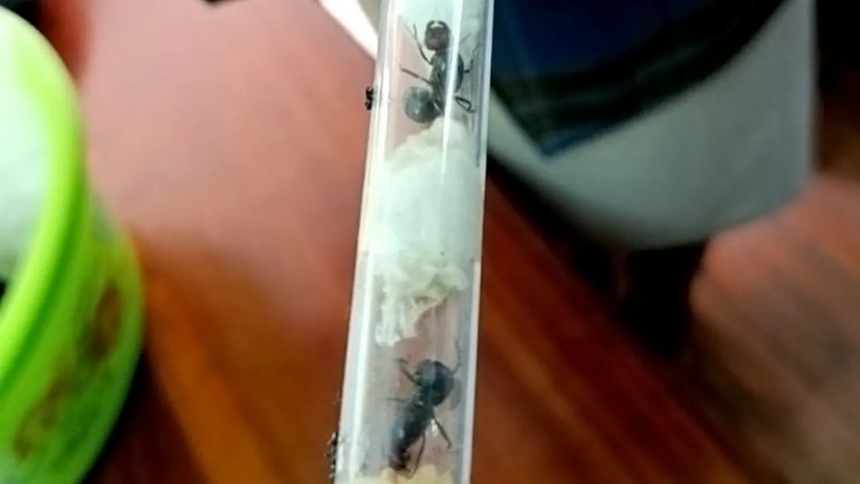Four individuals in Kenya have admitted to attempting to smuggle hundreds of highly coveted ants out of the country. The Kenya Wildlife Service (KWS), typically focused on safeguarding larger animals like lions and elephants, has labeled this incident as a “landmark case”. Among the contraband were giant African harvester ants, which can fetch up to £170 ($220) each from dealers in the UK.
This case highlights a concerning shift in trafficking trends, moving from well-known mammals to lesser-known species that play a crucial role in maintaining ecological balance, according to the KWS. The suspects had hidden the ants in specially designed test tubes and syringes, equipped to sustain the insects for up to two months. Additionally, they attempted to evade security measures by obscuring the contents of the tubes.
Images released by the KWS show numerous containers filled with cotton wool, each housing two or three ants. While the exact count of insects is still being assessed, KWS spokesperson Paul Udoto stated that this is the country’s first large-scale case of “bio-piracy”.
The four suspects, comprising two Belgians, a Vietnamese, and a Kenyan, were apprehended following a coordinated, intelligence-driven operation. It is believed that the ants were intended for the exotic pet markets in Europe and Asia, where the demand for rare insect species is on the rise. Enthusiasts maintain these ants in specialized enclosures called formicariums, observing their colony-building behavior.
The giant African harvester ant, scientifically known as Messor cephalotes, is the largest in its species, reaching approximately 20mm in size, with queens growing up to 25mm. Pat Stanchev, the general manager of Best Ants UK, a website dealing with insects, explained that their substantial size makes them appealing to pet owners. While he does not sell this particular ant species, he acknowledged the existence of individuals attempting to distribute illegally imported insects.
In Kenya, regulations protect these ants under international biodiversity agreements, tightly controlling their trade. The KWS emphasized that this prosecution underscores Kenya’s commitment to enforcing compliance and combating unconventional wildlife crimes effectively. The four men are scheduled for sentencing on Tuesday.
DISCLAIMER: The opinions, comments, and statements expressed by readers and contributors on this platform do not necessarily reflect the views or policies of Multimedia Group Limited.








